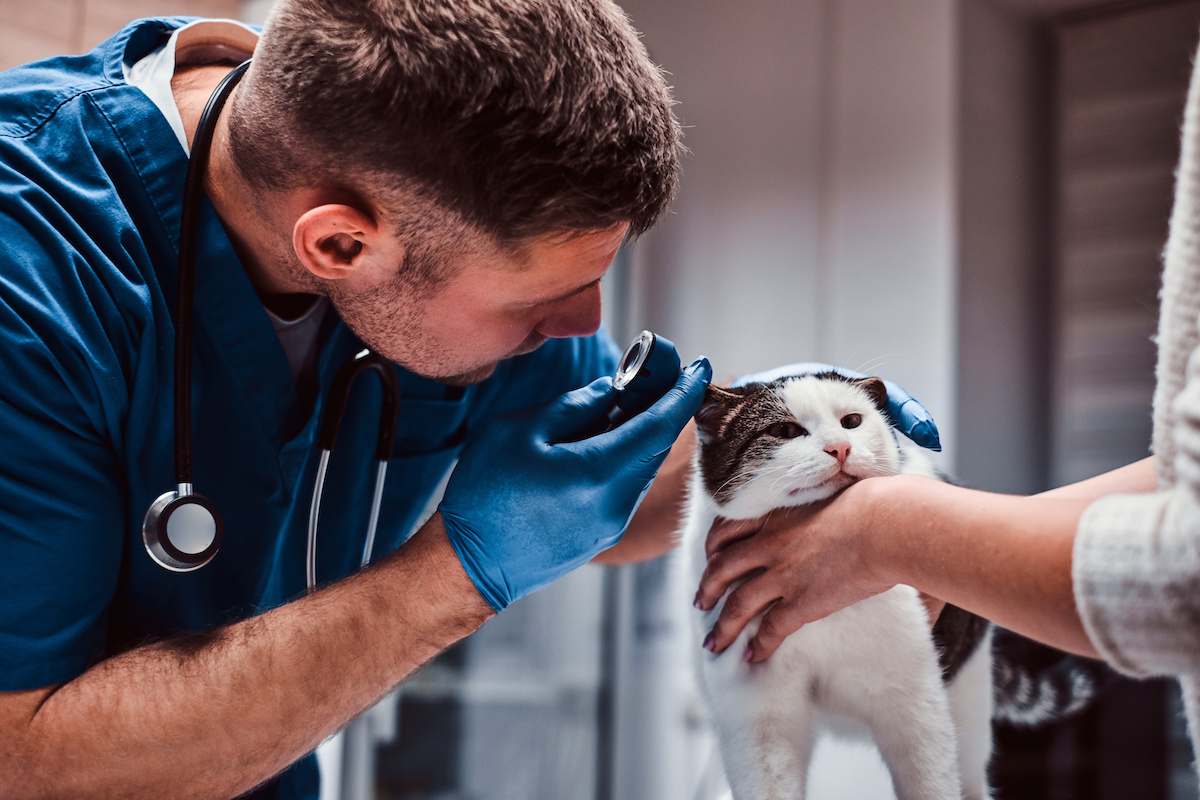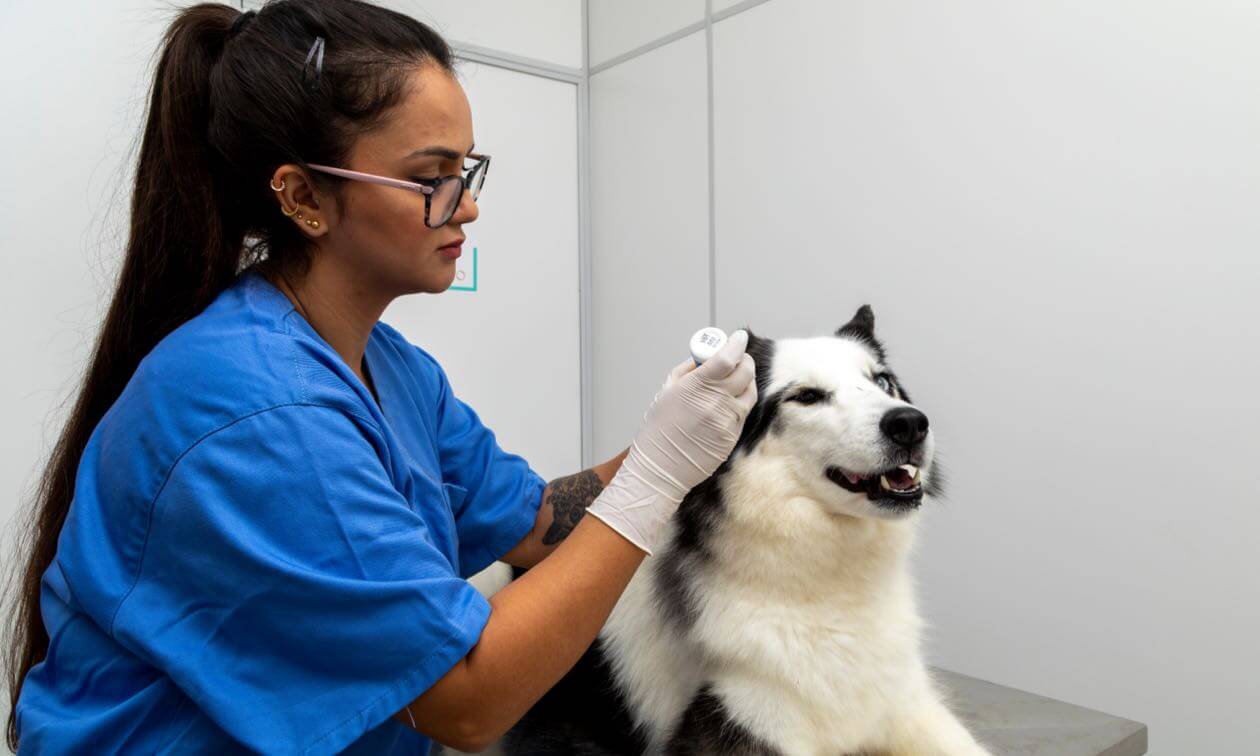How Emergency Vet Services Can Provide Quick and Reliable Treatment for Pets
Wiki Article
Inoculation Guidelines From Your Relied On Veterinarian
Vaccination standards provided by your trusted veterinarian play an important duty in protecting your pet's wellness and well-being. Core vaccinations are basic for all pets, while non-core vaccines can be tailored to particular lifestyles and ecological exposures. Recognizing the subtleties of inoculation schedules, which begin as early as 6 to 8 weeks, is necessary for optimum protection. In addition, addressing common misconceptions bordering vaccinations can better improve family pet proprietors' self-confidence in these precautionary measures. As we check out these important facets, it comes to be significantly clear why normal appointments with your vet are essential for informed decision-making.
Value of Vaccinations
Vaccinations play a crucial function in protecting animals versus a range of avoidable conditions. By stimulating the body immune system to recognize and combat particular virus, vaccines dramatically decrease the incidence of contagious diseases that can impact a pet's health and wellness and long life. Not only do inoculations safeguard individual pets, yet they also add to herd immunity, therefore lowering the general occurrence of illness in the pet population.Timely inoculations assist to minimize the spread of conditions such as rabies, parvovirus, and distemper, which can have serious effects for both people and pet dogs. Moreover, inoculations are typically a need for boarding facilities, grooming solutions, and canine parks, making them important for those that desire to mingle their animals.

Core Vaccines for Animals
While the particular vaccination demands of pet dogs can differ based upon specific elements, core vaccinations are universally recommended to protect versus the most usual and major illness (Pet Health Checkup). Core vaccinations are those deemed important for all family pets, regardless of their way of living or geographic area, as they safeguard against potentially deadly and extremely contagious health problemsFor pets, the core vaccines include those for canine distemper, parvovirus, adenovirus (hepatitis), and rabies. Canine distemper is a viral illness that influences the respiratory, stomach, and nerves. Parvovirus is known for triggering extreme intestinal health problem, specifically in puppies. Adenovirus can cause liver disease, while rabies is a zoonotic illness that postures a risk to both family pets and people.
In felines, core injections encompass feline panleukopenia, feline calicivirus, feline herpesvirus (rhinotracheitis), and rabies. Feline panleukopenia is an extremely contagious viral disease that impacts the immune system and intestinal tracts. Calicivirus and herpesvirus are significant contributors to top respiratory infections in felines, while rabies stays a vital concern for public wellness.
Speak with your veterinarian to guarantee your pet dogs get their core vaccinations on time.
Non-Core Vaccines Explained
Non-core vaccines are tailored to resolve details dangers connected with a pet's way of life, setting, and exposure to certain illness. Unlike core injections, which are generally suggested for all pets, non-core vaccinations are thought about based upon private circumstances. These injections are particularly vital for family pets that might experience unique virus due to their geographical area, traveling routines, or tasks.Examples of non-core injections consist of those for Bordetella bronchiseptica, which is linked to kennel cough, and Lyme illness, brought on by ticks. Animals that often communicate with other animals, such as those in boarding centers, pet parks, or brushing settings, may gain from Bordetella inoculation. In a similar way, if you live in a location where Lyme disease is common, immunizing against this disease can be a prudent selection for outdoor-loving dogs.
Various other non-core vaccines might consist of those for leptospirosis, canine influenza, and feline leukemia, depending on the details risk variables present. It is vital to have a detailed discussion with your veterinarian concerning your animal's way of living and the possible need for these injections, making sure a tailored inoculation approach that ideal safeguards your furry pal.
Inoculation Set Up Review

As pets develop, it is very important to abide by the recommended booster vaccinations. Vet Enterprise. For grown-up pets, core injections are typically offered each to three years, depending on the details vaccination and local guidelines. Non-core vaccines might be encouraged based on way of life elements and regional condition occurrence, necessitating a customized method
Routine vet check-ups are critical for upgrading vaccination routines. Your veterinarian can provide advice on the most ideal immunizations for your family pet, considering age, health and wellness standing, and environmental threats. By remaining positive and informed, family pet owners can ensure their fuzzy buddies obtain effective and timely inoculations, thereby guarding their health and health throughout their lives.
Typical Myths Concerning Injections
Mistaken beliefs regarding animal vaccinations can result in complication and unwillingness among family pet owners pertaining to the booster shot process. One widespread myth is that injections are unnecessary for indoor pets. While it holds true that interior pet dogs deal with reduced dangers, they are not entirely immune to diseases, as microorganisms can be introduced through numerous methods, consisting of human apparel and various other animals.Another false impression is that vaccines can cause the illness they aim to avoid. Actually, most injections have inactivated or attenuated microorganisms, which can not cause illness in healthy and balanced animals. Some pet dog proprietors likewise believe that their family pets must not be vaccinated if they are currently healthy; nevertheless, vaccinations are a positive procedure that helps avoid the start of health Bonuses problem.
In addition, many animal proprietors are afraid that vaccinations will lead to long-lasting health problems. The click to read benefits of inoculation-- shielding animals from potentially deadly conditions-- much exceed the risks.
Conclusion
In summary, adherence to vaccination standards is essential for ensuring the wellness and durability of animals. Core injections offer vital defense against major conditions, while non-core injections attend to specific risks based on individual way of livings. Developing a detailed inoculation timetable, together with regular veterinary examinations, helps with ideal health and wellness administration. Eliminating typical myths surrounding inoculations further enhances the significance of informed decision-making in pet dog care. Eventually, an aggressive strategy to vaccinations is crucial for preserving pet dog well-being.Not just do vaccinations safeguard individual animals, but they also add to herd resistance, consequently lowering the general prevalence of conditions in the pet dog population.
Misconceptions concerning pet inoculations can lead to complication and unwillingness among pet proprietors pertaining browse around this web-site to the immunization process. While it's real that interior pet dogs face reduced risks, they are not totally immune to illness, as pathogens can be introduced via numerous ways, consisting of human garments and various other pets.
Some pet owners also think that their animals must not be immunized if they are currently healthy and balanced; nevertheless, inoculations are a proactive step that aids avoid the onset of illness.
The advantages of vaccination-- safeguarding family pets from possibly dangerous illness-- much exceed the risks.
Report this wiki page